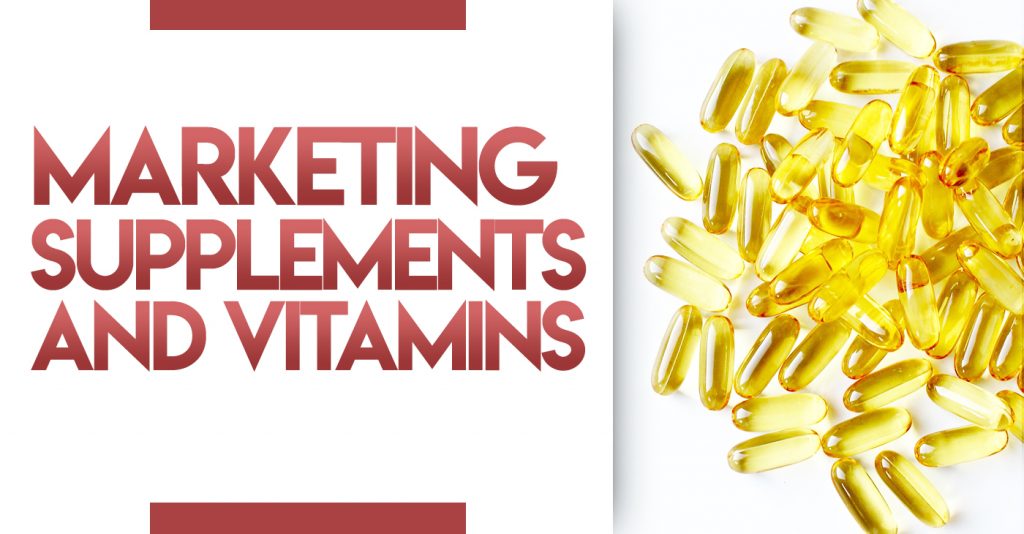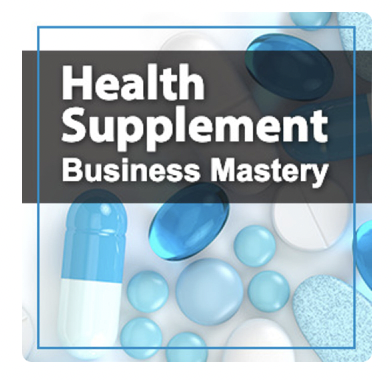
The path to marketing vitamins and building an online dietary supplement company is different for everyone.
Some start by selling on Amazon relying on existing buyers in the marketplace. Then support that with an eCommerce Shopify store of their own.
Others start with an information product, building an audience before switching to marketing supplements, like Drew Canole did with Organifi.
A few start by marketing vitamins and supplements through direct mail first. Taking advantage of buying a hyper segmented strong list to market to before moving online, like Ed O’Keefe did with Marine Essentials.
Others go straight for a direct response online approach like Patriot Greens and build an audience slowly from day one.
In many ways, it doesn’t really matter which way you start your health supplement business.
However, the path to becoming an online supplement mogul is evolving, as the marketplace continues to change.
And if you don’t change with it, you’re going to be left behind.
Marketing Online
Marketing your message is a big piece of getting the flywheel turning when starting.
Instagram, Facebook, YouTube advertising and more makes marketing online super easy.
These online platforms instantly fortify the need for a literal company face. An old fashioned pitch man, to embody the brand. Drew Canole from Organifi and Ian Clark from Activation Products are great examples. They come across extremely well on camera and genuinely embody the brand within their natural personality. Because their inner core is perfectly aligned with their company “WHY”.
Using a company face to market supplements will continue to work. Because at the end of the day, people buy from people.
But as the marketplace is maturing. More and more people learn about their specific health condition from “doctor Google”. Which leads to a more educated marketplace and an easier one to sell to if you nail the lever of trust.
The Big Shift in Marketing Online
The shift I’m seeing happening is in the trust lever. Or rather the outsourcing of trust with the halo effect…
The “halo effect” is when one trait (of a brand) is used to make an overall judgment.
It’s a type of cognitive bias, used for making a decision to trust someone or something very quickly.
But how does this effect marketing supplements exactly?
There is a movement happening that is taking full advantage of the halo effect.
To sell more dietary supplements online, companies like Onnit and Bulletproof, are moving moving to offline in-store distribution.
I see Dr. Gundry doing the same thing, maybe in reverse though, starting with his book (The Plant Paradox) in brick and mortar bookstores before moving to online video sales letters.
In either case the halo effect is in full force here.
The one trait being used to make an overall judgment, is that of trust. The cognitive bias being made here is that one trusts the brand more once they see it in stores. Making it easier to sell online.
Of course getting your brand on the shelf or end-cap of WholeFoods is just one path for growing a dietary supplement brand.
The New Path To Marketing Vitamins and Supplements
The second path to growth I’m also seeing happening more and more is a blending of direct response marketing with branding.
Traditionally, these are two different worlds.
The direct response world is one of getting a buyer up front and monetizing them on the back-end.
The branding world is a much longer play. (Requiring a much larger budget.) Focusing more on what you stand for rather than asking for the sale right away.
The reason why we’re seeing these two trends happening now is that the marketplace awareness and marketplace sophistication is changing from a level 4 to a level 5.
A Few Marketing Examples
And we’re seeing this in the marketing strategy a lot of the successful brands are implementing.
Onnit – is doing a hybrid direct response / branding approach with their eCommerce sales pages.
And supporting trust through authority with the Onnit Academy.
BulletProof – is coupling direct response / branding with in-store distribution in Whole Foods. And supporting trust through authority content built around Dave Asprey’s book “Head Strong”
In either case the path is different but the strategy for marketing a supplement is the same.
Before it was a one size formula for health entrepreneurs. Everyone starting their own line of supplement products with their own formulations went down the direct response road to selling. Building a list marketing a front-end product to monetize on the back-end. Then scale with paid traffic and one on one affiliate / Joint venture deals.
This is how Josh Bezoni & Joel Marion, built BioTrust from $0 to $100 Million. They focused on converting visitors to buyers first to feed the growth on the business in other areas.
Today this growth strategy still works quite well. But the customer is undergoing a marketplace change. One in which a bit of brand marketing is increasing trust by 10x. Which helps support the overall ability to convert more visitors into buyers.
Discover the 3 funnels that can help your health supplement business succeed.

Listen to the Health Supplement Business Mastery Podcast for for dietary supplement entrepreneurs and marketers.



